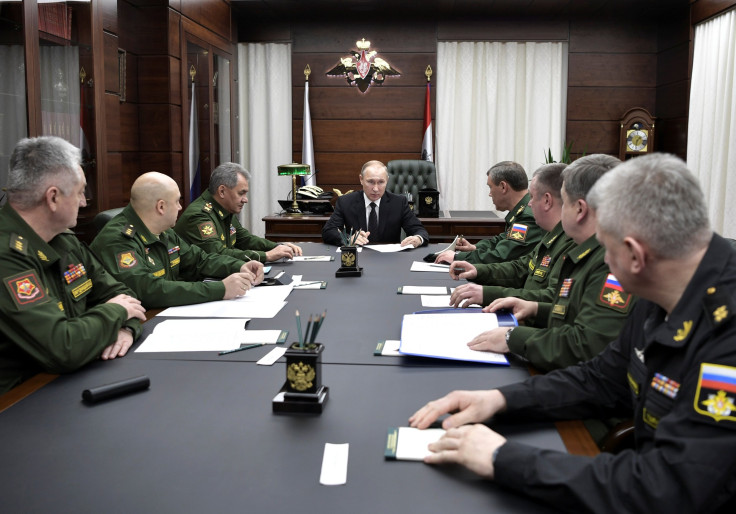Russia Military Power: Moscow Reveals Hacking Army To Expose West's 'Lies'

Russian Defense Minister Sergei Shoigu revealed Wednesday for the first time Moscow's electronic warfare branch during an address to parliament in which he outlined a massive program to upgrade the country's military capabilities, according to the Associated Press.
Shoigu stated "propaganda needs to be clever, smart and efficient," and retired Gen. Vladimir Shamanov, head of the lower house' defense affairs committee, said the newly formed cyber forces would "protect the national defense interests and engage in information warfare," according to Russia's Interfax news agency. Retired Col. Gen. Leonid Ivashov, former chief of international cooperation at the defense ministry, said the electronic army's true mission was to counter propaganda put forth by the West.
"We must stop offering excuses and force the West into the defensive by conducting operations to expose its lies," Ivashov said, according to Russia's RIA Novosti news outlet.
Former President Barack Obama and the U.S. intelligence community accused Russia last year of orchestrating hacks that leaked sensitive information from Democratic Party email servers. Neighboring Finland charged Russia with proliferating propaganda in the media last year in order to dissuade the Finnish public from joining international military alliance NATO or the EU. Russian President Vladimir Putin and his administration have repeatedly denied involvement by the Kremlin in hacking or spreading misinformation abroad.
During Shoigu's speech, the minister also revealed a massive initiative to modernize and bolster Russia's military forces. Measures included new shipments of 170 aircraft, 17 ships and 905 armored vehicles including tanks. Moscow's nuclear forces also expected new intercontinental ballistic missiles, on top of 41 reportedly received last year.
Russia's military might has been estimated as being second only to the U.S. with Moscow having an advantage in certain areas such as tanks and nuclear weapons, but being outmatched in other strategic measures including aircraft carriers and various technological advancements. Russia's latest moves came after expanding its military presence in recent years and direct interventions in conflicts in Ukraine and Syria. Russia and NATO have staged parallel military escalations over the past few months in Europe with each accusing the other of warmongering.
© Copyright IBTimes 2024. All rights reserved.












